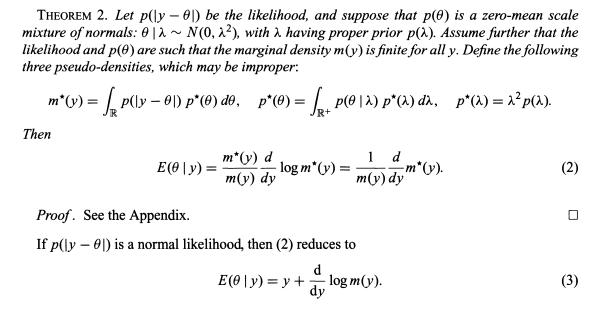Suppose I've observed $x$ from a Student-t distribution with unknown $\mu$, and I'd now like to infer $\mu$. Since the t-distribution isn't exponential family, there's no conjugate prior available, and so I'll assume $\mu$ is Normally distributed.
$$\mu \sim N(\mu_0,\sigma_0^2)$$ $$x \sim t_\nu(\mu, \sigma^2)$$ (student-t parametrization as used by Kevin Murphy https://www.cs.ubc.ca/~murphyk/Papers/bayesGauss.pdf)
I'm aware that there's probably no closed-form expression for the posterior itself, but is it possible to analytically solve for the posterior mean, $$\hat \mu = \mathbb{E}[\mu\mid x]$$
Thanks!

